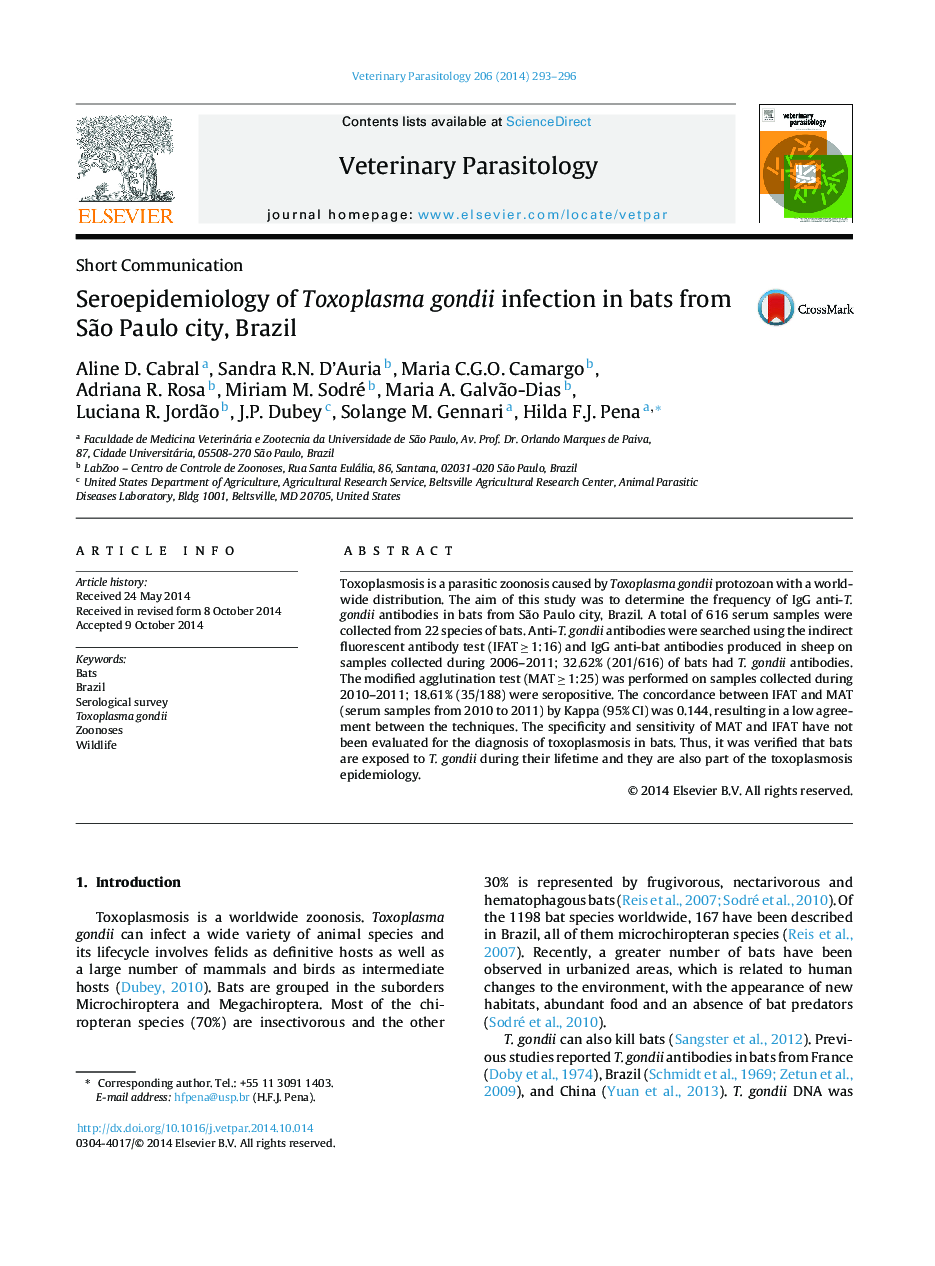| Article ID | Journal | Published Year | Pages | File Type |
|---|---|---|---|---|
| 5802851 | Veterinary Parasitology | 2014 | 4 Pages |
â¢Bats play a role in toxoplasmosis epidemiology in Brazil.â¢The detection of IgG anti-T. gondii antibodies by IFAT (2006-2011) was 32.62%.â¢The detection of IgG anti-T. gondii antibodies by MAT (2010 and 2011) was 18.61%.â¢There was a poor agreement (Kappa 0.144) between IFAT and MAT (2010 and 2011).
Toxoplasmosis is a parasitic zoonosis caused by Toxoplasma gondii protozoan with a worldwide distribution. The aim of this study was to determine the frequency of IgG anti-T. gondii antibodies in bats from São Paulo city, Brazil. A total of 616 serum samples were collected from 22 species of bats. Anti-T. gondii antibodies were searched using the indirect fluorescent antibody test (IFAT â¥Â 1:16) and IgG anti-bat antibodies produced in sheep on samples collected during 2006-2011; 32.62% (201/616) of bats had T. gondii antibodies. The modified agglutination test (MAT â¥Â 1:25) was performed on samples collected during 2010-2011; 18.61% (35/188) were seropositive. The concordance between IFAT and MAT (serum samples from 2010 to 2011) by Kappa (95% CI) was 0.144, resulting in a low agreement between the techniques. The specificity and sensitivity of MAT and IFAT have not been evaluated for the diagnosis of toxoplasmosis in bats. Thus, it was verified that bats are exposed to T. gondii during their lifetime and they are also part of the toxoplasmosis epidemiology.
